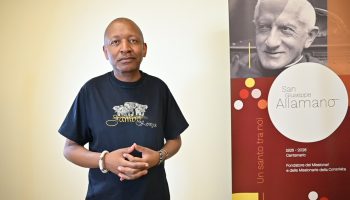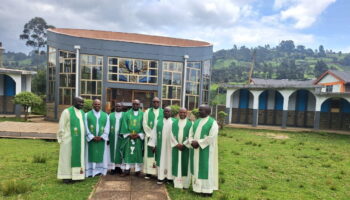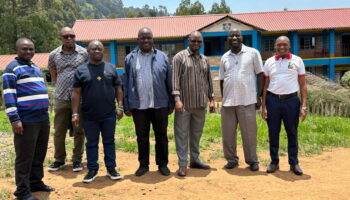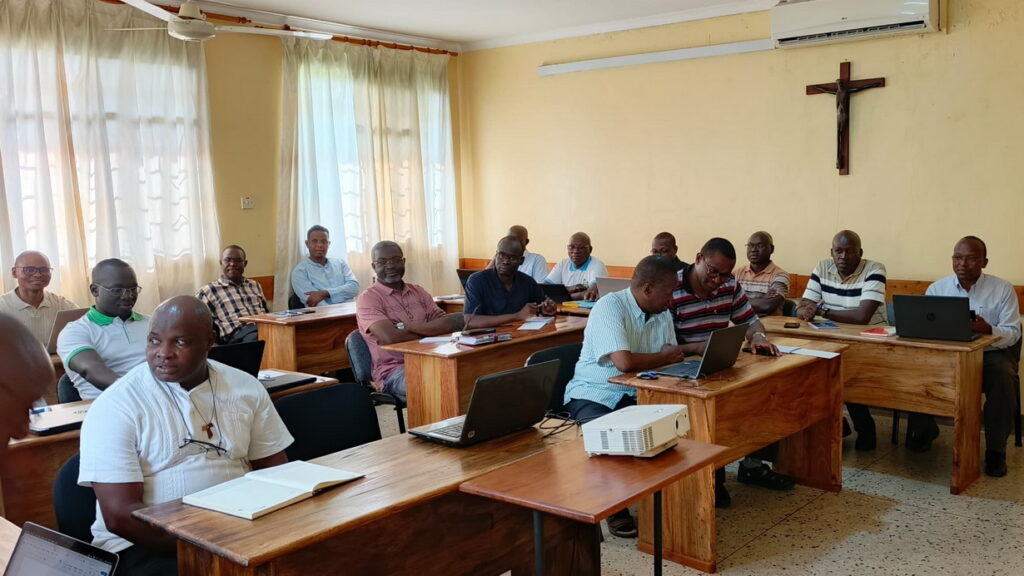
From 7th to 12th of July, the ongoing formation for IMC Formators working in African was held in Bunju, Dar Es Salaam, Tanzania. In a synthesis form we present some of the aspects that came out from this course.
By Paulino Madeje *
After the opening session, Fr. Erasto Mgalama thanked the missionaries for their participation pinpointing that the course is of great importance in their life but also in the life of the formees.
The program of the first day was to make an analysis of the IMC Formation reality in every Circumscription. After the opening session, the general Councilor for African Continent, Fr. Erasto Mglama, thanked the organizing team led by Fr. Matthew Odhiambo, general Councilor in charge formation in the Institute. Fr. Mgalama also extended his gratitude to other missionaries for their participation pinpointing that the course is of great importance in their life but also in the life of the formees and the Institute in general. Fr. Matthew Odhiambo, for his part, thanked the formators, acknowledging their untiring work they are doing in formation.
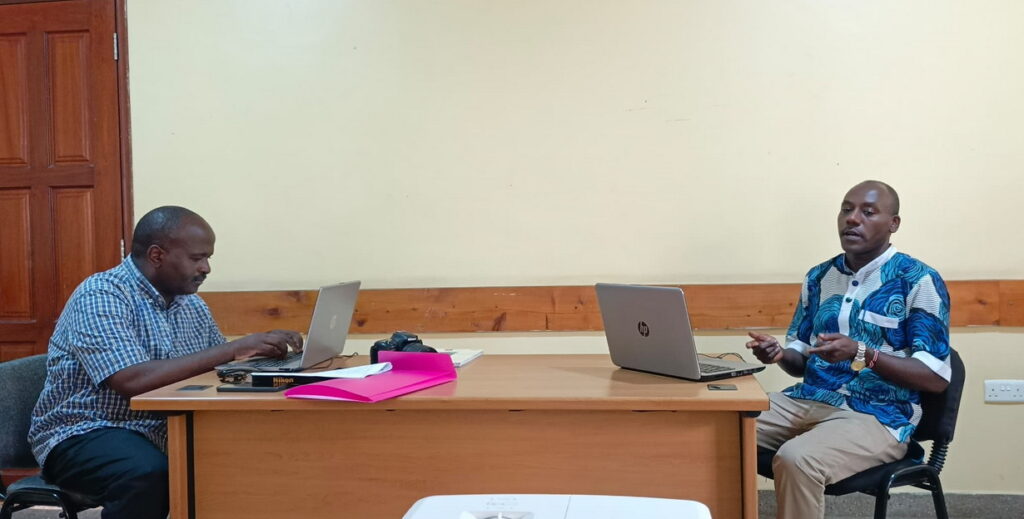
Then in a brief presentation, each missionary introduced himself regarding the place where he comes from and the group of formation that he is accompanying, ranging from Propaedeutic to Theologicum sand Specializations. In total they were 30 working in 8 nations namely Kenya, Tanzania, Ethiopia, Congo DR, Mozambique, South Africa and Cote d’Ivoire. The total number of the students in formation from Propaedeutic to Specializations in Africa is 244, of whom 19 are novices.
After the presentation, Fr. Matthew Odhiambo provided statistical information on the IMC members. Today the congregation has 889 missionaries. He also described that the Institute is currently enjoying some positive elements like fraternity, community life, prophetic life, multiculturality, etc. However, he stressed that, like in any other institution or organization there are always challenges to face.
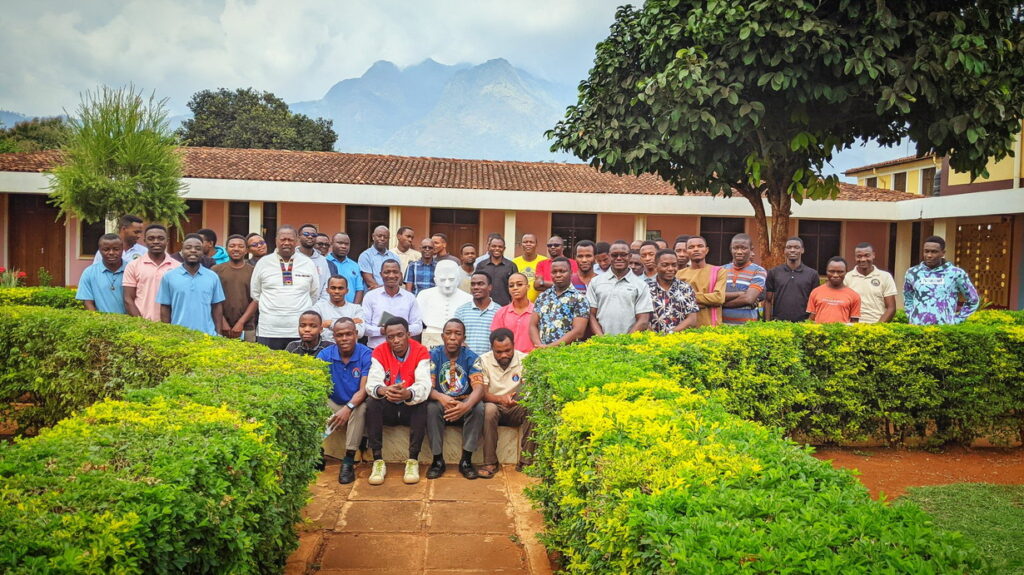
“What is the way forward”?, he interrogated and maintained that the answer to this question is a formation (basic, ongoing and other studies). “Which are the tasks that need to be accomplished in the future?”, Fr. Odhiambo inquired. Then he provided four aspects namely: courses for permanent formation, global reflection of formation, immersion in the charism and the celebration of the Year of the IMC brothers (May 2027 – May 2028).
After this introduction, the formators were required to share an analysis of the situation of the IMC houses of formation in Africa using the SWOT method (Strength, Weakness, Opportunities and Threats). The outcome of their sharing is presented in the following:
At the Propaedeutical level
The formators revealed that the strengths were such as: good number of candidates asking to join our Institute, good number of missionary experiences as shared by the visiting missionaries. Moreover, there are students with professional studies joining our Institute.
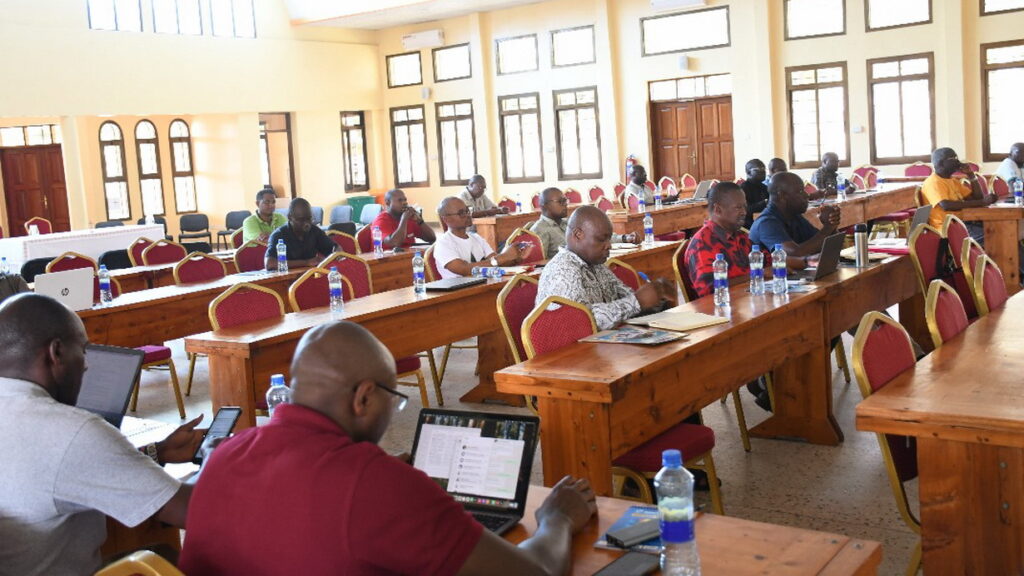
Nevertheless, some weaknesses were addressed that need to deal with, such as the scarcity of funds, poor animation, and in this aspect, the missionaries need to know that they are all animators of vocations, and we are all one big family.
But there are also some opportunities such as the presence of Parishes and institutions around can that support the formation activities. Subsequently, there are collaboration with family members and friends to support the work of formation. Lastly, teamwork with other congregations for exchanging ideas.
The threats are such as: the Digital world and its consequences, materialism, etc.
At the Philosophicum level
There were some perceived strengths such as high numbers of vocations, trained candidates that join the Seminary. And some of the threats are such as modernization and secularization among the students, pursuit for comfort among our students.
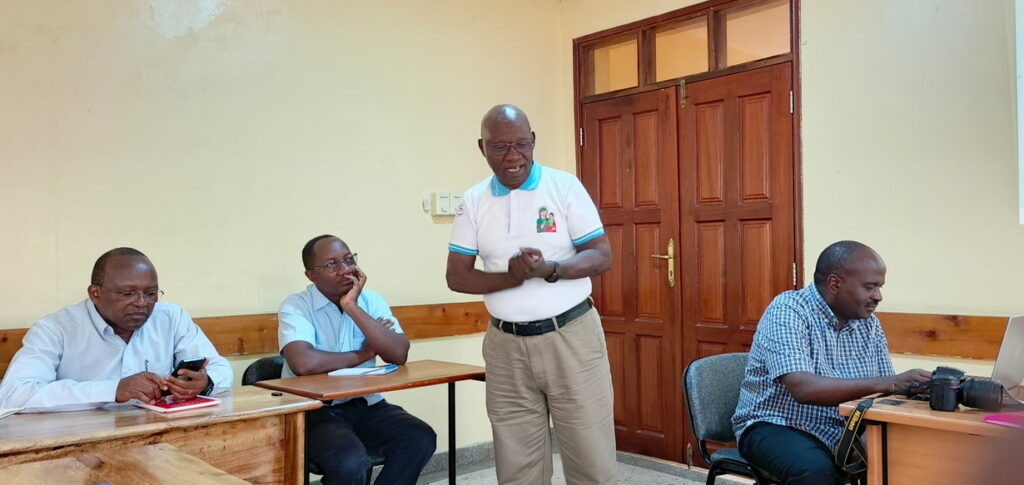
Novitiate level
A positive image was given when evaluating the formation of novices. There is a good existence of intercultural communities and a life of harmony. However, the language becomes a barrier for some of the students, a situation that is sorted out with time.
Theologicum and Specialization level
A similar image was portrayed. Nevertheless, it was considered important to invest in projects that can finance formation, and a diversity in specialization and not limiting it to Theology alone.
After their presentation, Fr Matthew concluded by giving four important things to consider in formation: First, Personal files: they must be well organized and be handed over from one stage of formation to the next. Second, Reports for Admissions that must have sufficient information of the candidates to be admitted. Third, the importance of community plan of life which a copy must be sent to the Regional/ Delegate superior and to the General Councilor for formation!
Last, the formation of continental formators commission, a structure of synodality in matters of formation in the Continent.
* Father Paulino Madeje, IMC, Tanzania. Coordinator of Communication for Africa.

